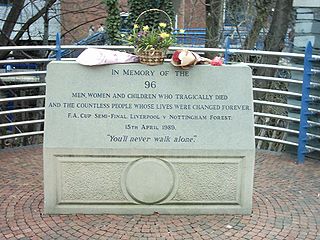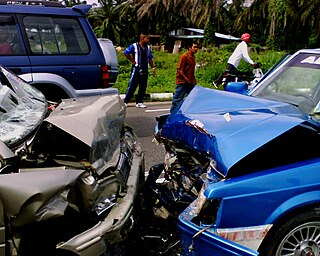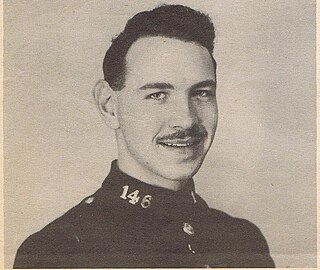Related Research Articles

English tort law concerns the compensation for harm to people's rights to health and safety, a clean environment, property, their economic interests, or their reputations. A "tort" is a wrong in civil law, rather than criminal law, that usually requires a payment of money to make up for damage that is caused. Alongside contracts and unjust enrichment, tort law is usually seen as forming one of the three main pillars of the law of obligations.

James Ashley was a British man who, while unarmed and naked, was shot dead by police in his flat in St Leonards-on-Sea, East Sussex, on 15 January 1998. Armed officers raided the building on the suspicion that Ashley kept a firearm and a quantity of cocaine there, and to arrest him and another man in connection with a stabbing. Neither a firearm nor a significant quantity of drugs was found, the other man was not present, and it later emerged that Ashley was not implicated in the stabbing. Ashley, likely woken by the noise of the raid, was out of bed when an armed police officer entered his bedroom. On seeing the officer, Ashley raised one arm and the officer reacted by firing a single shot. Later that morning, Sussex Police chief constable Paul Whitehouse held a press conference in which he praised the conduct of the operation.
Volenti non fit iniuria is a Roman legal maxim and common law doctrine which states that if someone willingly places themselves in a position where harm might result, knowing that some degree of harm might result, they are not able to bring a claim against the other party in tort or delict. Volenti applies only to the risk which a reasonable person would consider them as having assumed by their actions; thus a boxer consents to being hit, and to the injuries that might be expected from being hit, but does not consent to his opponent striking him with an iron bar, or punching him outside the usual terms of boxing. Volenti is also known as a "voluntary assumption of risk".

West Yorkshire Police, formerly the West Yorkshire Metropolitan Police, is the territorial police force responsible for policing the metropolitan county of West Yorkshire, England. It is the fourth largest territorial police force in England and Wales by number of officers.

South Yorkshire Police (SYP) is the territorial police force responsible for policing South Yorkshire in England. The force is led by Chief Constable Lauren Poultney. Oversight is conducted by Mayor Oliver Coppard.

North Yorkshire Police is the territorial police force covering the unitary authorities of North Yorkshire and the City of York in northern England. As of April 2024 the force had a strength of 1,665 police officers, 127 special constables, 192 PCSOs and 1,072 police staff. Of the 43 territorial police forces in England and Wales, the force has the 3rd largest geographic area of responsibility whilst being the 15th smallest force in terms of police officer numbers.
In English tort law, an individual may owe a duty of care to another, in order to ensure that they do not suffer any unreasonable harm or loss. If such a duty is found to be breached, a legal liability will be imposed upon the tortfeasor to compensate the victim for any losses they incur. The idea of individuals owing strangers a duty of care – where beforehand such duties were only found from contractual arrangements – developed at common law, throughout the 20th century. The doctrine was significantly developed in the case of Donoghue v Stevenson, where a woman succeeded in establishing a manufacturer of ginger beer owed her a duty of care, where it had been negligently produced. Following this, the duty concept has expanded into a coherent judicial test, which must be satisfied in order to claim in negligence.
In English law, a nervous shock is a psychiatric / mental illness or injury inflicted upon a person by intentional or negligent actions or omissions of another. Often it is a psychiatric disorder triggered by witnessing an accident, for example an injury caused to one's parents or spouse. Although the term "nervous shock" has been described as "inaccurate" and "misleading", it continues to be applied as a useful abbreviation for a complex concept. The possibility of recovering damages for nervous shock, particularly caused by negligence, is strongly limited in English law.

Peter Raymond Oliver, Baron Oliver of Aylmerton, PC was a British barrister and judge who served as a Lord of Appeal in Ordinary between 1986 and 1991. The son of an academic lawyer, he served with distinction during the Second World War, before joining the Chancery bar. He was appointed to the High Court in 1974, to the Court of Appeal in 1980, and to the House of Lords in 1986, having earlier been tipped to succeed Lord Denning as Master of the Rolls in 1982. He retired in 1992, and in later life suffered from loss of sight.

Alcock v Chief Constable of South Yorkshire Police[1991] UKHL 5, [1992] 1 AC 310 is a leading English tort law case on liability for nervous shock. The case centred upon the liability of the police for the nervous shock suffered in consequence of the events of the Hillsborough disaster.

Page v Smith[1995] UKHL 7 is a decision of the House of Lords. It is part of the common law of England and Wales.
Administrative liability in English law is an area of law concerning the tortious liability of public bodies in English law. The existence of private law tort applying to public bodies is a result of Diceyan constitutional theory suggesting that it would be unfair if a separate system of liability existing for government and officials. Therefore, a public body which acts ultra vires is liable in tort is a cause of action can be established just like any individual would be. An ultra vires action will not, per se, give rise to damages Therefore, a claimant will have to fit into one of the recognised private law courses of action. These areas in which a public body can incur private liability in tort were described by Lord Browne Wilkinson in X v Bedfordshire County Council [1995] 3 All ER 353 (HL).
S and Marper v United Kingdom [2008] ECHR 1581 is a case decided by the European Court of Human Rights which held that holding DNA samples of individuals arrested but who are later acquitted or have the charges against them dropped is a violation of the right to privacy under the European Convention on Human Rights.

Philip Douglas Knights, Baron Knights, was an English police officer who served as Chief Constable of West Midlands Police, succeeding West Midlands Police's first Chief Constable, Sir Derrick Capper.

Lister v Hesley Hall Ltd [2001] UKHL 22 is an English tort law case, creating a new precedent for finding where an employer is vicariously liable for the torts of their employees. Prior to this decision, it had been found that sexual abuse by employees of others could not be seen as in the course of their employment, precluding recovery from the employer. The majority of the House of Lords however overruled the Court of Appeal, and these earlier decisions, establishing that the "relative closeness" connecting the tort and the nature of an individual's employment established liability.

R v The Commissioner of Police of the Metropolis [2011] UKSC 21 was a 2011 judgment of the Supreme Court of the United Kingdom. The case concerned the extent of the police's power to indefinitely retain biometric data associated with individuals who are no longer suspected of a criminal offence. In the case, a majority of the Supreme Court, including the Court's President Lord Phillips and the Lord Chief Justice Lord Judge reversed an earlier ruling of the High Court of Justice and found that the police force's policy of retaining DNA evidence in the absence of 'exceptional circumstances' was unlawful and a violation of Article 8 of the European Convention on Human Rights. The court declined to offer any specific relief however, recognising that the policy is expected to be subject to legislative scrutiny as Part 1 of the Protection of Freedoms Bill 2011.

The floodgates principle, or the floodgates argument, is a legal principle which is sometimes applied by judges to restrict or limit the right to make claims for damages because of a concern that permitting a claimant to recover in such situations might open the metaphorical "floodgates" to large numbers of claims and lawsuits. The principle is most frequently cited in common law jurisdictions, and in English tort law in particular.

Hill v Chief Constable of West Yorkshire[1987] UKHL 12, [1989] AC 53 was a judicial decision of the House of Lords in relation to the claim by the mother of Jacqueline Hill against West Yorkshire Police that their negligence in failing to apprehend the killer resulted in her daughter's death.
Chief Constable of the North Wales Police v Evans [1982] UKHL 10 is a UK constitutional law case, concerning judicial review.

Robinson v Chief Constable of West Yorkshire Police[2018] UKSC 4 is a leading English tort law case on the test for finding a duty of care. An elderly woman was injured by two police officers attempting to arrest a suspect and she claimed that the police owed her a duty of care not to be put in danger. The UK Supreme Court found that the police did owe a duty of care in this case as there was no general rule that the police are not under any duty of care when performing their duties.
References
- ↑ "Cases - tort - negligence - duty of care". sixthformlaw.info. Archived from the original on 28 May 2018. Retrieved 27 February 2013.
{{cite web}}: CS1 maint: unfit URL (link)
